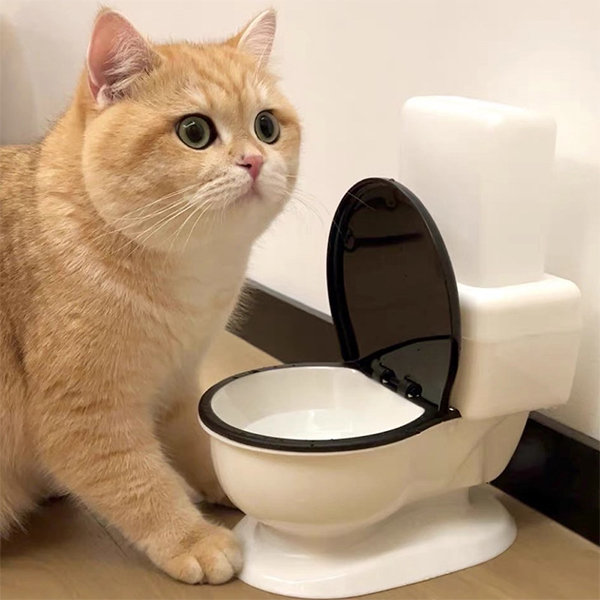Avoid Toilet Emergencies: Never Flush Cat Poop Down Your Toilet - Expert Guidance
Avoid Toilet Emergencies: Never Flush Cat Poop Down Your Toilet - Expert Guidance
Blog Article
This great article down below involving Can You Flush Cat Poo or Litter Down the Toilet? is extremely fascinating. Give it a go and make your own personal conclusions.

Introduction
As pet cat proprietors, it's important to be mindful of how we throw away our feline good friends' waste. While it might seem practical to purge pet cat poop down the bathroom, this practice can have detrimental repercussions for both the setting and human health.
Ecological Impact
Flushing feline poop presents harmful virus and parasites into the water supply, positioning a significant threat to marine environments. These impurities can adversely impact aquatic life and compromise water high quality.
Health Risks
Along with environmental problems, purging cat waste can likewise present health and wellness threats to humans. Feline feces may consist of Toxoplasma gondii, a parasite that can create toxoplasmosis-- a possibly extreme health problem, particularly for pregnant females and individuals with weakened body immune systems.
Alternatives to Flushing
Thankfully, there are safer and more responsible ways to deal with feline poop. Think about the adhering to options:
1. Scoop and Dispose in Trash
The most common approach of dealing with pet cat poop is to scoop it into an eco-friendly bag and throw it in the garbage. Be sure to utilize a dedicated trash inside story and get rid of the waste without delay.
2. Usage Biodegradable Litter
Choose eco-friendly feline litter made from products such as corn or wheat. These litters are environmentally friendly and can be safely disposed of in the garbage.
3. Bury in the Yard
If you have a backyard, think about hiding cat waste in an assigned area away from vegetable gardens and water sources. Be sure to dig deep sufficient to stop contamination of groundwater.
4. Install a Pet Waste Disposal System
Invest in an animal waste disposal system specifically designed for pet cat waste. These systems utilize enzymes to break down the waste, decreasing odor and ecological effect.
Final thought
Responsible pet ownership extends beyond providing food and shelter-- it likewise involves appropriate waste monitoring. By avoiding purging pet cat poop down the bathroom and going with alternate disposal approaches, we can reduce our ecological impact and shield human wellness.
Why You Should Never Flush Cat Poop Down the Toilet
A rose by any other name might smell as sweet, but not all poop is created equal. Toilets, and our sewage systems, are designed for human excrement, not animal waste. It might seem like it couldn’t hurt to toss cat feces into the loo, but it’s not a good idea to flush cat poop in the toilet.
First and foremost, assuming your cat uses a litter box, any waste is going to have litter on it. And even the smallest amount of litter can wreak havoc on plumbing.
Over time, small amounts build up, filling up your septic system. Most litter sold today is clumping; it is made from a type of clay that hardens when it gets wet. Ever tried to scrape old clumps from the bottom of a litter box? You know just how cement-hard it can get!
Now imagine just a small clump of that stuck in your pipes. A simple de-clogger like Drano isn’t going to cut it. And that means it’s going to cost you big time to fix it.
Parasitic Contamination
Believe it or not, your healthy kitty may be harboring a nasty parasite. Only cats excrete Toxoplasma in their feces. Yet it rarely causes serious health issues in the cats that are infected. Most people will be fine too if infected. Only pregnant women and people with compromised immune systems are at risk. (If you’ve ever heard how women who are expecting are excused from litter cleaning duty, Toxoplasma is why.)
But other animals may have a problem if infected with the parasite. And human water treatment systems aren’t designed to handle it. As a result, the systems don’t remove the parasite before discharging wastewater into local waterways. Fish, shellfish, and other marine life — otters in particular — are susceptible to toxoplasma. If exposed, most will end up with brain damage and many will die.
Depending on the species of fish, they may end up on someone’s fish hook and, ultimately on someone’s dinner plate. If that someone has a chronic illness, they’re at risk.
Skip the Toilet Training
We know there are folks out there who like to toilet train their cats. And we give them props, it takes a lot of work. But thanks to the toxoplasma, it’s not a good idea.

I was brought to that article on How to Dispose of Cat Poop and Litter Without Plastic Bags through an associate on a different blog. Sharing is caring. You just don't know, you may be helping someone out. Thank you so much for your time spent reading it.
Call Today Report this page